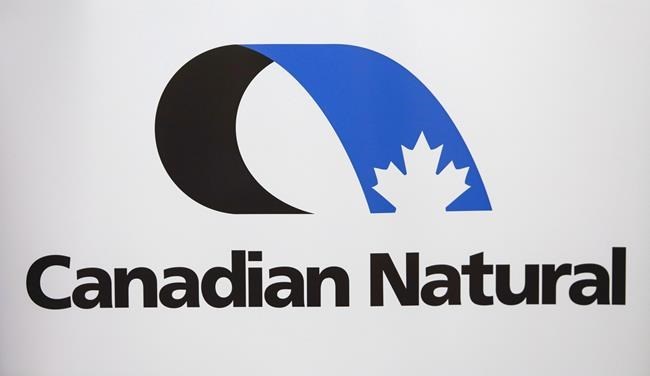CALGARY ŌĆö 91įŁ┤┤ Natural Resources Ltd.'s president Tim McKay added his voice Thursday to the chorus of oilsands executives who in recent days have been pushing back against critics by touting their industry's contributions to the overall economy.
McKay, who heads Canada's largest oil and gas producer, said on a third-quarter earnings conference call on Thursday that CNRL is expected to contribute $11 billion in taxes and royalties to federal and provincial governments this year, a 120 per cent increase from 2021.
"That is an increase of approximately $6 billion or 120 per cent from 2021 levels," McKay said, the same day the company reported a third-quarter profit of $2.81 billion, up from $2.20 billion a year earlier, and hiked its quarterly dividend to 85 cents per share from its previous dividend of 75 cents per share.
Both Cenovus Energy CEO Alex Pourbaix and Imperial Oil CEO Brad Corson also recently used their third-quarter calls to emphasize the size of the contributions their companies make to government coffers.┬Ā
The new messaging tactic comes as the oil and gas sector is increasingly under scrutiny from critics who question why the industry isn't using more of their hefty profits this year to invest in decarbonization projects. RussiaŌĆÖs invasion of Ukraine drove energy commodities to heights not seen in many years in 2022, but critics say the companies reaping the profits are focusing too much on rewarding shareholders and not enough on investing in local communities and the environment.
In particular, the members of the Pathways Alliance ŌĆö a consortium of oilsands companies, of which CNRL is a member ŌĆö has been criticized by environmentalists for not moving faster with its own greenhouse gas emissions reduction pledges.┬Ā
The Pathways Alliance has said it could spend up to $16.5 billion on its proposed carbon capture and storage network in northern Alberta before 2030, but it has not yet pulled the trigger to go ahead with the ambitious project.
Federal Environment Minister Steven Guilbeault has said the industry needs to start using its record-breaking profits to take action on some of its proposals.
But McKay said the idea that the industry has been slow to move on its greenhouse gas reduction plans is a mischaracterization. While the Pathways group is still trying to secure additional federal and provincial support for its headline carbon capture project, it has said it foresees being able to start injecting carbon as early as 2026.
"Spending actually starts this year. There's a lot of environmental work," McKay said on Thursday's conference call.
"Obviously, we'd like to submit the regulatory pieces as soon as possible, hopefully here in 2023. With that, we'd look to order pipe for the trunk line ŌĆö so there's a lot of work being done by approximately 200 different individuals, between all the companies involved in the project."
The Pathways proposal would capture CO2 emissions from more than 20 oilsands facilities in northern Alberta and store them safely underground, delivering an estimated 10 million tonnes of emissions reductions per year.
Other companies involved in the project include Cenovus Energy Inc., ConocoPhillips Canada, Imperial Oil Ltd., MEG Energy Corp., and Suncor Energy Inc.
On Thursday, CNRL said its revenue for the quarter totalled $10.46 billion, up from $7.71 billion in the third quarter of 2021, while production in the quarter averaged 1,338,940 barrels of oil equivalent per day, up from 1,237,503 a year ago.
The company's adjusted profit from operations totalled $3.09 per diluted share in its latest quarter, up from $1.77 per diluted share a year earlier.
CNRL also reported all-time record total quarterly production of 1.3 million barrels of oil equivalent per day for the three months ended Sept. 30.
This report by The 91įŁ┤┤ Press was first published Nov. 3, 2022.
Companies in this story: (TSX:CNQ)
Amanda Stephenson, The 91įŁ┤┤ Press



